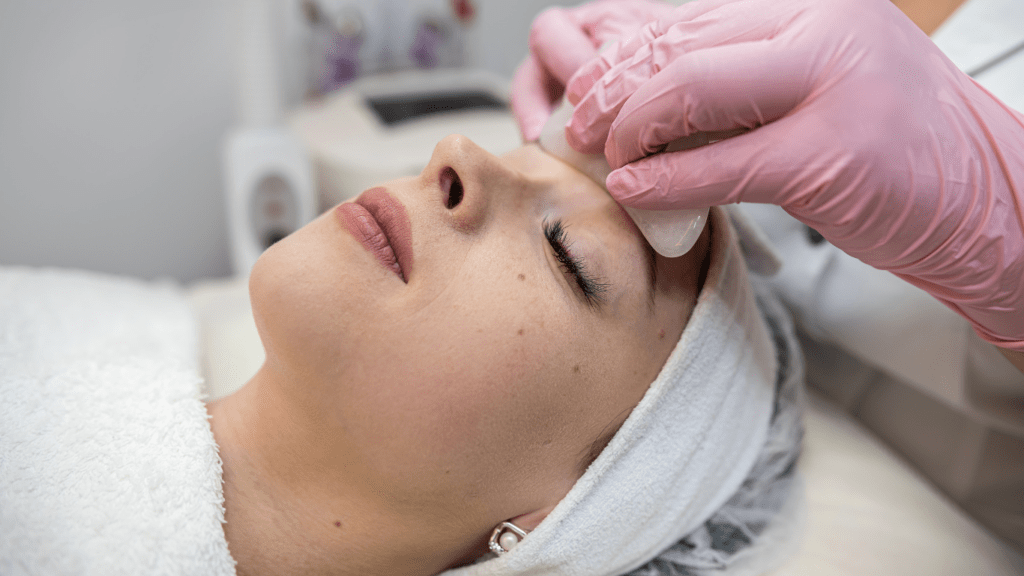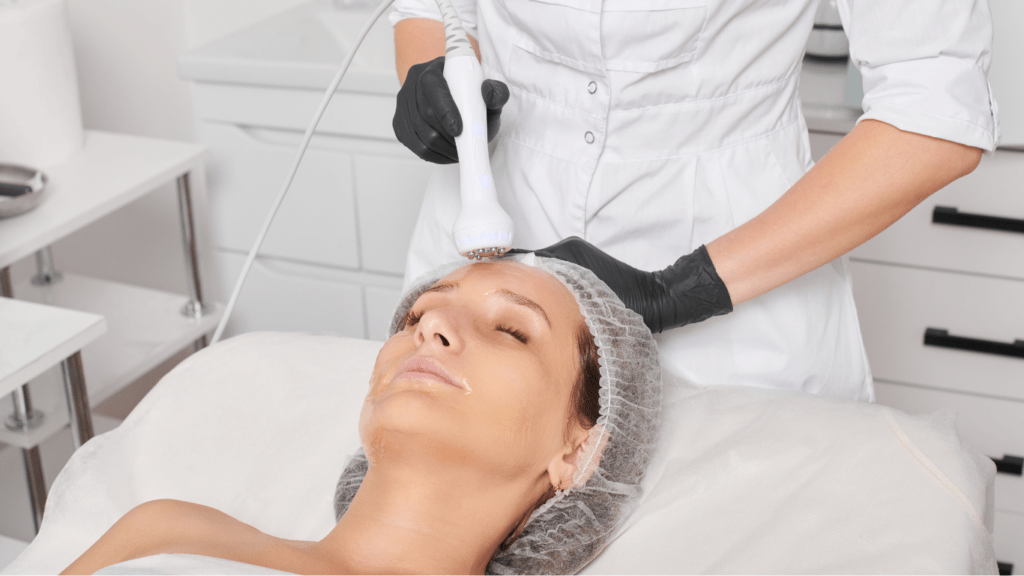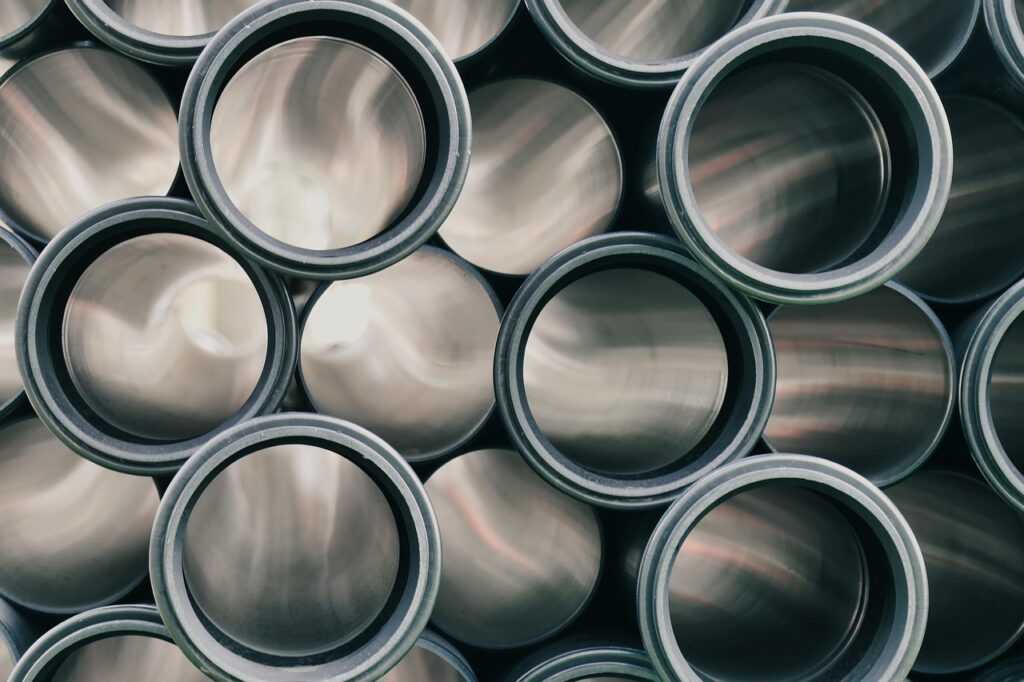Understanding Anti-Aging Skincare
Anti-aging skincare aims to preserve a youthful appearance by addressing visible signs of aging such as wrinkles, fine lines, and loss of elasticity. Multiple factors contribute to skin aging, including genetics, environmental exposure, and lifestyle choices.
Key Components
- Retinoids: Derived from Vitamin A, these compounds accelerate cell turnover and stimulate collagen production. Examples include tretinoin and retinol.
- Antioxidants: Block free radicals that damage skin cells. Common antioxidants include Vitamin C and E, green tea extract, and Coenzyme Q10.
- Peptides: Short chains of amino acids that signal skin to produce more collagen. Popular peptides include Matrixyl and Argireline.
- Hyaluronic Acid: Hydrates the skin by drawing moisture from the environment, resulting in plumper and smoother skin.
- Sunscreens: Protect against UV damage, a major cause of premature aging. Broad-spectrum sunscreens with SPF 30 or higher are recommended.
Emerging Trends
- Stem Cell Therapy: Uses plant or human stem cells to promote regeneration and repair of skin tissues. For instance, apple stem cells are known for their rejuvenating properties.
- Microbiome Skincare: Focuses on maintaining a balanced skin microbiome to improve overall skin health and resilience.
- DNA Repair Enzymes: Targets genetic damage caused by environmental factors like UV rays, potentially reversing signs of aging at a cellular level.
- Peptide Infusion Technology: Enhances the delivery of peptides into the skin, maximizing their anti-aging effects.
- Diet: A balanced diet rich in antioxidants supports skin health. Foods like berries, nuts, and leafy greens are beneficial.
- Hydration: Adequate water intake maintains skin hydration and elasticity.
- Sleep: Quality sleep aids in skin repair and rejuvenation.
- Exercise: Regular physical activity enhances blood circulation, delivering nutrients and oxygen to skin cells.
Understanding anti-aging skincare involves recognizing the science behind product ingredients, emerging trends, and the impact of lifestyle choices. This integrated approach ensures optimized skincare routines for maintaining youthful, radiant skin.
Breakthrough Ingredients

The latest breakthroughs in anti-aging skincare focus on innovative ingredients that offer remarkable results. In this section, I’ll cover the significant advances in retinoids, peptides, and antioxidants.
Retinoids and Their Benefits
Retinoids improve skin texture and reduce signs of aging. Derived from Vitamin A, they boost collagen production, reducing fine lines and wrinkles. They also accelerate cell turnover, leading to fresher skin layers and fading dark spots. Over-the-counter forms like retinol and prescription versions like tretinoin provide various potency options. Consistent use minimizes the appearance of pores and promotes even skin tone.
Peptides for Skin Repair
Peptides play a vital role in skin repair and rejuvenation. These short chains of amino acids act as building blocks for essential proteins like collagen and elastin.
Incorporating peptides helps restore skin firmness and elasticity. Products with peptides, like Matrixyl and Argireline, target specific concerns such as sagging and expression lines. Utilizing peptides aids in maintaining a youthful complexion by promoting skin’s natural repair process.
Antioxidants: The Vitamin C Revolution
Antioxidants combat free radicals that accelerate aging. Vitamin C, a powerful antioxidant, leads this revolution. It neutralizes free radicals, brightens the skin, and boosts collagen synthesis. Regular application reduces hyperpigmentation and protects against UV-induced damage. Combining Vitamin C with other antioxidants like Vitamin E and ferulic acid enhances its stability and effectiveness.
Innovative Skincare Technologies
Advancements in skincare technologies are transforming how we address aging. These innovations provide effective ways to maintain youthful, healthy skin.
Microcurrent Devices
Microcurrent devices use low-voltage electrical currents to stimulate facial muscles and skin cells. They enhance blood circulation, boost collagen production, and promote skin tightening. Regular use has been shown to reduce fine lines, improve skin texture, and lift sagging skin.
Red and Blue Light Therapy
Red and blue light therapy utilizes different wavelengths of light to target skin concerns. Red light increases collagen production and reduces inflammation, making it effective for anti-aging.
Blue light targets and destroys acne-causing bacteria, which can improve skin clarity and reduce breakouts. Combining these therapies addresses multiple skin issues simultaneously.
Laser Treatments
Laser treatments offer precise solutions for various signs of aging. They work by removing damaged skin layers and stimulating collagen production. Fractional laser treatments focus on small areas to reduce recovery time while achieving significant results.
Popular options include CO2 and Erbium lasers, which are effective for treating wrinkles, age spots, and skin laxity.
Personalized Skincare
Personalized skincare tailors products and treatments to individual skin needs. New technologies provide custom solutions that deliver more effective results.
DNA-Based Skincare Solutions
DNA-based skincare uses genetic information to create personalized regimes. Companies analyze DNA to understand skin’s unique characteristics, including collagen breakdown, pigmentation, and antioxidant levels.
For example, brands like Skinshift and SkinDNA offer tests analyzing these factors to develop targeted skincare products. By addressing specific genetic predispositions, these solutions deliver precision in combating aging signs effectively.
AI and Skincare Analysis
AI transforms skincare analysis by providing in-depth assessments. AI tools evaluate skin conditions using images and data inputs, recommending personalized routines and products.
Apps like SkinVision and L’Oréal’s Effaclar Spotscan offer users real-time insights into their skin, including hydration levels, fine lines, and texture. By leveraging AI, skincare brands offer highly tailored solutions, addressing individual skin concerns more accurately and efficiently.
Using DNA-based solutions and AI analysis, personalized skincare is revolutionizing how we approach skin health and anti-aging treatments.
Sustainable and Clean Skincare
Emerging trends in the anti-aging skincare sector are focusing on sustainability and cleanliness. Individuals now seek products that not only deliver results but are environmentally friendly and non-toxic.
Eco-Friendly Packaging
Eco-friendly packaging has become a priority for brands. Companies are increasingly choosing materials like recycled paper, biodegradable plastics, and glass for their product packaging.
For example, brands like Origins and Kiehl’s have adopted 100% recyclable materials. This shift not only reduces waste but also appeals to eco-conscious consumers. In addition, some brands have introduced refillable packaging options, reducing the frequency of disposal and fostering a circular economy.
Natural and Organic Ingredients
Natural and organic ingredients are reshaping skincare formulations. Products containing plant-based elements, such as aloe vera, chamomile, and green tea, are gaining popularity due to their antioxidant and anti-inflammatory properties. Numerous studies highlight the efficacy of ingredients like rosehip oil and argan oil for anti-aging benefits.
These elements often lack harmful chemicals, making them safer for skin and the environment. Moreover, certifications from organizations like USDA Organic and COSMOS offer consumers confidence in the product’s purity and sustainability.
Consumer Testimonials and Results
I’ve gathered numerous consumer testimonials, revealing the effectiveness of various anti-aging skincare products. For instance, users of retinoid-based creams report significant improvements in fine lines and skin texture within weeks. One user mentioned, “After just two weeks, my crow’s feet are noticeably reduced.”
Antioxidant-rich serums receive high praise as well. Several consumers noted brighter, more even skin tones after consistent use. One testimonial states, “The dark spots on my face have lightened, and my skin looks more radiant.”
Peptide-infused products also showcase remarkable results. Users often share their experiences of firmer and more supple skin. An enthusiastic user said, “My skin feels plumper and smoother, and the smile lines have diminished.”
Hyaluronic acid treatments highlight outstanding hydration benefits. Many users comment on their skin’s increased moisture levels and improved elasticity. “My skin no longer feels dry and tight, and it looks much healthier,” remarked one happy customer.
Sunscreens with advanced formulations are essential in these routines. Consumers have noted better protection against sun damage and reduced pigmentation. A satisfied user shared, “I noticed fewer sunspots and my skin feels protected throughout the day.”
The integration of these advanced skincare ingredients and techniques demonstrates how effective modern anti-aging products can be. By sharing these testimonials, I’m confident that others can make informed decisions about their skincare routines to achieve desired results.


 Jewelldane Fultz is a skincare specialist and beauty enthusiast who has spent years studying the science behind healthy skin. Known for her expertise in formulating effective skincare routines, Jewelldane emphasizes simplicity and consistency to help people achieve long-lasting results. Her in-depth knowledge of skincare ingredients makes her a trusted source for anyone looking to enhance their natural glow.
Jewelldane Fultz is a skincare specialist and beauty enthusiast who has spent years studying the science behind healthy skin. Known for her expertise in formulating effective skincare routines, Jewelldane emphasizes simplicity and consistency to help people achieve long-lasting results. Her in-depth knowledge of skincare ingredients makes her a trusted source for anyone looking to enhance their natural glow.
